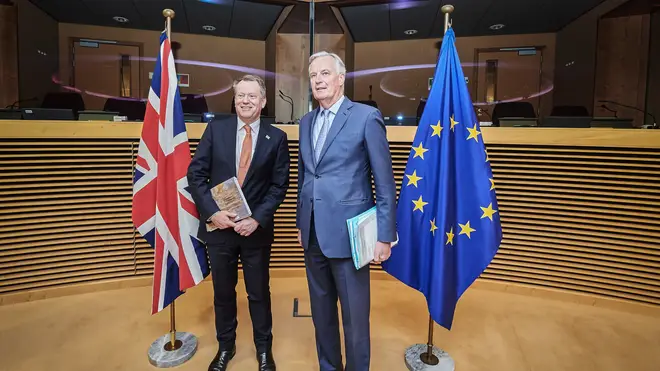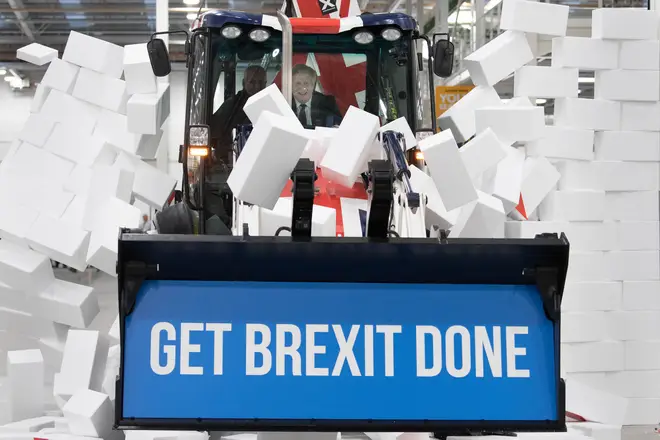
Richard Spurr 1am - 4am
15 May 2020, 12:40 | Updated: 15 May 2020, 15:29

The latest round of Brexit talks between the UK and the EU have finished without any significant progress being made.
The UK has blamed the European Union for insisting on tying it to EU regulations, saying that in "unbalanced" and "unprecedented".
Boris Johnson insists that the people want Brexit to be done and he will not be extending the deadline of 31st December - even with the coronavirus pandemic making negotiations more difficult.
After the third round of talks, the UK's chief Brexit negotiator David Frost said: “I regret however that we made very little progress towards agreement on the most significant outstanding issues between us.

Michel Barnier on Brexit negotiations: "You cannot have the best of both worlds"
“It is very clear that a standard Comprehensive Free Trade Agreement, with other key agreements on issues like law enforcement, civil nuclear, and aviation alongside, all in line with the Political Declaration, could be agreed without major difficulties in the time available. Both sides have tabled full legal texts, there are plenty of precedents, and there is clearly a good understanding between negotiators.
“The major obstacle to this is the EU’s insistence on including a set of novel and unbalanced proposals on the so-called “level playing field” which would bind this country to EU law or standards, or determine our domestic legal regimes, in a way that is unprecedented in Free Trade Agreements and not envisaged in the Political Declaration. As soon as the EU recognises that we will not conclude an agreement on that basis, we will be able to make progress.

“Although we have had useful discussions on fisheries on the basis of our draft legal text, the EU continues to insist on fisheries arrangements and access to UK fishing waters in a way that is incompatible with our future status as an independent coastal state. We are fully committed to agreeing fishing provisions in line with the Political Declaration, but we cannot agree arrangements that are manifestly unbalanced and against the interests of the UK fishing industry.
“It is hard to understand why the EU insists on an ideological approach which makes it more difficult to reach a mutually beneficial agreement.
“We very much need a change in EU approach for the next Round beginning on 1 June. In order to facilitate those discussions, we intend to make public all the UK draft legal texts during next week so that the EU’s Member States and interested observers can see our approach in detail.
“The UK will continue to work hard to find an agreement, for as long as there is a constructive process in being, and continues to believe that this is possible.”
Michel Barnier said the UK wanted "the best of both worlds" and warned of a looming stalemate.